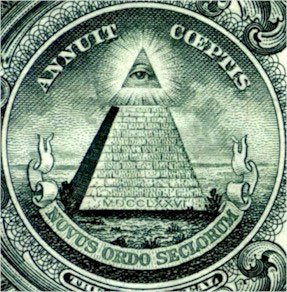the secret authority of the language of god
secret, authority, language, and god are all obviously just words. What is the source of these words?
secret
late 14c. (n.), c.1400 (adj.), from L. secretus “set apart,withdrawn, hidden,” originally pp. of secernere “to set apart,” from se- + -cernere
[C14: via Old French from Latin sēcrētus concealed, from sēcernere to sift;
see secern ]
secretion
1646, from Fr. sécrétion, from L. secretionem (nom. secretio)”separation,”
from pp. stem of secernere “to separate, set apart”(see secret).
The verb secrete in this sense is a back-formation first attested 1707.
selected, set aside, separated, isolated, divided, consecrated, specially reserved
language
late 13c., from O.Fr. langage (12c.), from V.L. *linguaticum, fromL. lingua
“tongue,” also “speech, language” (see lingual).
Related to: link, leg, legal, law, lexicon, ligament, joint, join, junction, jugular, conjugal, conjugate, conjoined, yoke, yoga
god
[Old English god; related to Old Norse goth, Old High German got,
Old Irish guth voice]
O.E. god “supreme being, deity,” from P.Gmc. *guthan (cf. Du.god,
Ger. Gott, O.N. guð, Goth. guþ), from PIE *ghut- “that which is
invoked” (cf. Skt. huta- “invoked,” an epithet of Indra), from
root *gheu(e)- “to call, invoke.” (voice, declare, claim, assert)
epithet: a characterizing word or phrase firmly associated with a person or thing and
often used in place of an actual name, title, or the like,
as “man’s best friend” for “dog.”
The English word “god” invokes an ancient Sanskrit word for “Indra,” as in the Divine Presence or Sacred Essence or Holy Spirit or Secret Authority. Note that when YHWH is translated in to The LORD, that references authority, as in “the king of kings” or the “controlling power of heaven over the earth (a linguistic symbol for subjective perception), rule of god, reign of god, supremacy of god, the realm of god, the kingdom of god, the kingdom of heaven,” and so on. Further, when Logos is translated in to Word, that also references authority, specifically influence through language.
“Secret” is a symbolic code of sound, a word which can be written down, and which is spoken through physical bodies and can be heard and recognized through physical bodies.
“Language” is a symbolic code of sound, a word which can be written down, and which is spoken through physical bodies and can be heard and recognized through physical bodies.
“God” is a symbolic code of sound, a word which can be written down, and which is spoken through physical bodies and can be heard and recognized through physical bodies.
The word “god” is related to invocation, to vocalization, to voicing- the speaking of things in to experience, the authoring of perception, the creating or constructing of recognizable patterns, the labeling of reality. Labeling reality influences attention, perception, and behavior.
Why study this? We have been instructed that the godly shall inherit the blessings of god. Godly means godlike. So what is god like? Also, what are the blessings of god?
The blessings of god include all of the qualities of being godly or godlike. We can review several qualities which have been traditionally associated with god. First, we will explore how god is so strong (powerful) as to be meek.
NOTE: YOU MUST SUBSCRIBE TO RECEIVE ACCESS TO ADDITIONAL CONTENT. THIS IS THE END OF THE PUBLIC CONTENT.


Related articles
- God Language (religiousjourney.com)
- In The Darkness – Good Friday – April 6, 2012 – John 19: 30 – 42 (prissiesissie.wordpress.com)
- The Divine Decree (bcaskins.wordpress.com)
- Secrets of the Maya @ the R.O.M (iritfurman.wordpress.com)
- Study Guide #2- What Causes Shame? (readingremy.com)
- Jafree Ozwald – Enlightened Beings – The Secrets To Enlightening Your Life – 7 April 2012 (lucas2012infos.wordpress.com)
- regret 1: I believed the sun would rise tomorrow. (167hours.net)
- The secret Arimathean Apostle I (chandlerozconsultants.wordpress.com)
- Thomas: Poet Or Plagiarist? (irishmediaman.wordpress.com)
- The hole in your heart is designed to be full (andrewejenkins.wordpress.com)
- Living on the Edge (evotionals.net)
- April 7 (bibleday2day.wordpress.com)
- The Ancient Secret Of The Swastika & The Hidden History Of The White Race (lecturiincitante.wordpress.com)
- Weekly Video Blog: Are You Repelling or Attracting Your Destiny? (writingyourdestiny.com)
- He does it All (earthismyclassroom.wordpress.com)
- “Pleasant Whispers” (destinedtocreate.com)
- The secrets we keep from ourselves (filterbypass.wordpress.com)
- Stephen Fry reveals new BBC TV series (guardian.co.uk)
- As one can see when the eyes are open (teachingsofmasters.wordpress.com)
- The Cross & Suffering… (Secret Church: Part 1) (journeyofsteps.wordpress.com)
- Secret Church Last Night Was Convicting and Edifying! The topic was the Cross and Suffering (haroldcameron.wordpress.com)
- Proverbs 2: 1-5 (proverbialthought.com)
- The Book of Common Poetry (aratus.typepad.com)
- Angels (lancelottuckerblog.com)
- 120408 – George Hach’s Journal – Sunday (georgehachmyblog.wordpress.com)
- Babel No More: Inside the Secrets of Superhuman Language-Learners (brainpickings.org)
- 120407 – George Hach’s Journal – Saturday (georgehachmyblog.wordpress.com)
- Lesson 5 of the Salvation Series – Heaven’s Rehabilitation Program (sdayouthkorea.org)
- Three Thousand: How Pentecost Reveals the Impact of the Cross (ofdustandkings.com)
- Did Moses stutter? A scientific investigation (whyevolutionistrue.wordpress.com)
- The Holy Spirit – Fr. Thomas R. Harding, Th.D. (epages.wordpress.com)
- Sunday Reflections with Jean-Luc Marion: Happy Easter! (jeffchuais.wordpress.com)
- Pray for Those in Authority (hasarla.wordpress.com)
Leave a comment
No comments yet.




Leave a comment